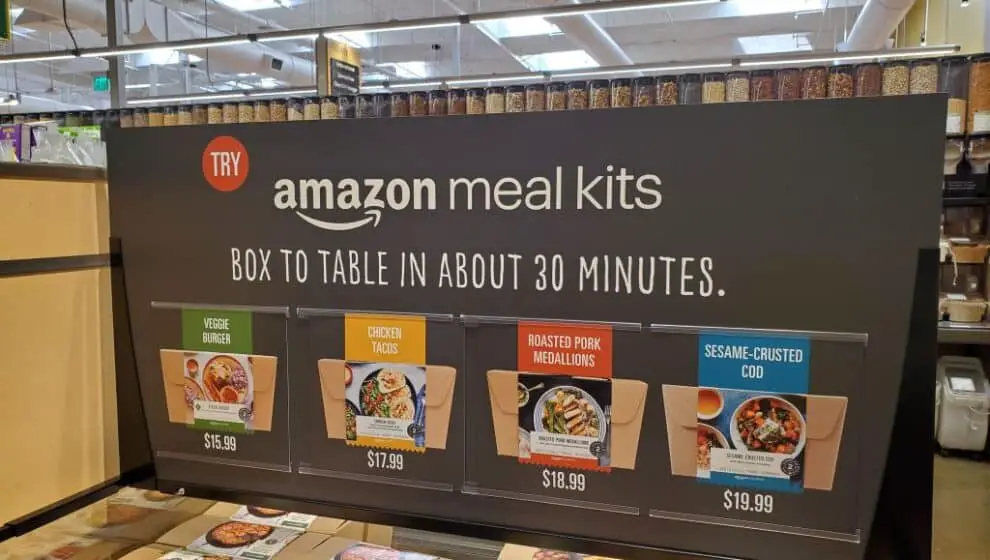Whole Foods is exploring the option of building off-site kitchens to supply ready-made food rather than outsourcing the products.
Key Details
- There are around 514 Whole Foods stores in the U.S., all containing pre-prepared food bars and refrigerated cases stocked with ready-to-go meals.
- Since the start of the year, sales of prepared meals at grocery stores are 30% higher than 2019’s level, according to data from Circana Group LP.
- Whole Foods’ pre-prepared meals are very popular, leading the company to begin looking to build off-site kitchens to stop outsourcing the food and better control the quality of its multibillion-dollar prepared foods business.
Why it’s news
Whole Foods Market is a subsidiary of Amazon that focuses on providing customers with natural and organic foods. The company has a large pre-prepared food market and is looking to start preparing its products in off-site commercial kitchens.
Whole Foods’ pre-prepared foods are a significant draw for customers, with many buyers purchasing the company’s pizza, soups, and other ready-to-eat meals. The prepared foods follow the company’s quality standards prohibiting ingredients such as high-fructose corn syrup and other ingredients.
Over the last few years, the company’s prepared food sector has grown significantly, leading Whole Foods to expand it by offering more options, catering services, and online ordering. Some stores also offer coffee, wine, and juice bars in-store.
Following the pandemic, many large retailers began selling more pre-prepared meals as the options became more popular during the worldwide shutdown. Whole Foods senior vice president of global culinary Jeff Turnas says he plans to expand the company’s sushi, sheet cakes, and juice bars offerings in the coming months to meet growing demand.
To continue the growth of the prepared food sector and to ensure that all pre-made food meets the company’s standards Whole Foods is looking to start building off-site commercial kitchens to prepare the food.
Right now, most of the pre-made meals are outsourced from other companies, but by building a commercial kitchen, Whole Foods will be able to supply all of its 514 stores with internally made food.
The company hasn’t released how many kitchens it is considering making or when production will begin.
Other Whole Foods News
Amazon is looking to expand its Amazon One palm-scanning technology to 65 Whole Food stores in California. The checkout devices were first introduced in 2020 as part of the Amazon One payment service, allowing customers to pay with a scan of their palm.
Several Whole Foods locations have already been testing the palm-scanning technology in the Los Angeles area as well in Austin, Seattle, and New York. It’s also available at the company’s Amazon Style store in Glendale, California, and at select Amazon Go and Fresh stores, says The Verge.
The program links the customers’ palm print to their credit card information, and once registered, all customers have to do is hover their hand over the device. Amazon says the new technology is a quick and easy way to make a payment, enter a venue, or identify yourself.
Amazon reassures customers that their information is safe and not stored in the device. The technology has “multiple layers of security controls are used to protect data, including encryption and data isolation.”
The company says they chose the palm because no two are alike. Your palm has multiple layers of distinguishing features that make it safe, easy, and convenient.
